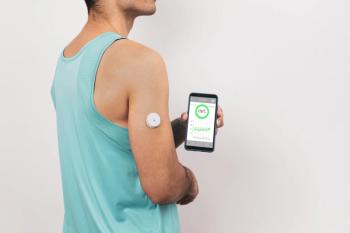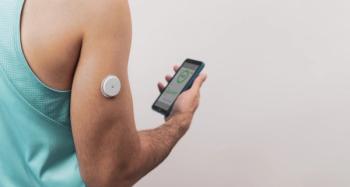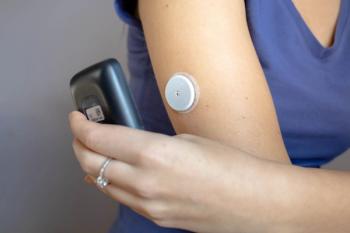
Dexcom Submits New CGM for Non-Insulin Type 2 Diabetes for FDA Clearance
Although continous glucose monitors (CGMs) have often been tailored to patients with type 1 diabetes, data elicited by these technologies add value to the management of type 2 diabetes by offering insights into patients’ unique responses to food, activity, medications, and more.
Dexcom has submitted Stelo, a new continuous glucose monitor (CGM) intended for use by patients with diabetes who do not require insulin, for clearance to the FDA.1
Pending the FDA’s response, the device is anticipated to roll out later this summer.
For the 70% of Americans living with diabetes who don’t use insulin,1 Stelo will unlock valuable and personal insights to better manage the condition.
“Dexcom is building a world in which our care for users includes not only helping them in the management of chronic conditions, but the potential to help prevent the onset and progression of disease through better metabolic health,” said Kevin Sayer, chairman, president, and CEO of Dexcom, in a news release.1 “There is so much that people who don’t use insulin can learn by receiving continuous glucose data and seeing first-hand how diet, exercise, sleep stress and other factors affect their overall health."
Unlike other CGM technologies often catered toward patients with type 1 diabetes (T1D), Stelo was designed with the needs of patients with type 2 diabetes (T2D) in mind. Streamlined for this patient population, Stelo will measure blood glucose data for 15 days instead of 10 and omit insulin-related alarms, resulting in a shorter warmup time for the user.
The device is projected to be priced competitively with Abbot’s Freestyle Libre systems and will launch alongside a cash-pay option for patients without insurance.2
The introduction of Stelo signals a larger movement that has gained traction in recent years to expand the scope of diabetes technologies and serve a wider patient population.
It builds on the momentum created by key players in the diabetes space, like Medicare, which in its biggest move yet expanded CGM coverage last year to include both insulin-treated patients with T2D and non-insulin treated patients with T2D with a demonstrated history of hypoglycemia.2 The expansion granted coverage eligibility to an estimated 3-4 million people in the US with problematic hypoglycemia,1 a group that will also be eligible for Stelo upon its release.
For patients with T1D who lack insulin production, CGMs are essential for monitoring blood sugar fluctuations.3 Left unchecked, patients are susceptible to complications like ketoacidosis or hypoglycemia. For patients with T2D who maintain some degree of insulin production, reliance on real-time data is often considered to be less critical.
Still, data elicited by CGMs, and other diabetes technologies, add value to the management of T2D by offering insights into patients’ unique responses to food, activity, medications, and more.
When launched, Stelo will join the likes of Dexcom’s Dexcom G7, now available in 14 countries and 5 continents, and Dexcom ONE, the first technology from the company to be available in Latin America, to help as many patients as possible take control of their diabetes.1
References
1. Global continuous glucose monitoring pioneer Dexcom reveals new plans to bring sensing technology to millions more. News release. Dexcom. June 23, 2023. Accessed January 30, 2024. https://investors.dexcom.com/news/news-details/2023/Global-Continuous-Glucose-Monitoring-Pioneer-Dexcom-Reveals-New-Plans-to-Bring-Sensing-Technology-to-Millions-More/default.aspx
2. Susannah Chen. Dexcom launching new Stelo continuous glucose monitor for type 2 diabetes. News release. diaTribe. January 16, 2024. Accessed January 30, 2024. https://diatribe.org/new-dexcom-cgm-people-type-2-diabetes-not-using-insulin
3. Salsali A, Nathan M. A review of types 1 and 2 diabetes mellitus and their treatment with insulin. Am J Ther. 2006;13(4):349-361. doi:10.1097/00045391-200607000-00012
Newsletter
Pharmacy practice is always changing. Stay ahead of the curve with the Drug Topics newsletter and get the latest drug information, industry trends, and patient care tips.























